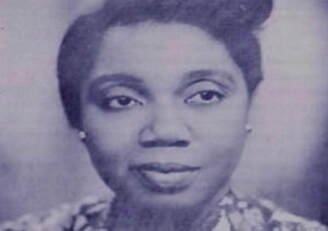Lady Kofoworola Ademola, born Oloori Kofoworola Moore on May 21, 1913, holds a prominent place in African history as the first Black African woman to graduate from the University of Oxford.

Kofoworola Ademola is the first African woman to earn an Oxford university degree
A true pioneer, she not only broke educational barriers but also left a legacy of advocacy, leadership, and service to her country.
Born into the Egba royal family of Western Nigeria, Kofoworola was the daughter of Omoba Eric Olawolu Moore, a distinguished Nigerian lawyer, and Aida Arabella Moore, an African-American returnee and descendant of Scipio Vaughan—a former enslaved man and artist who encouraged his descendants to return to Africa and rise to greatness.
Thanks to her family’s strong emphasis on education and leadership, Kofoworola received a privileged upbringing with access to top-tier education. Her father was determined that she would achieve more than traditional expectations for women at the time, encouraging her to seek academic excellence abroad rather than simply marry into wealth.
She began her higher education at Vassar College in New York before transferring to Portway College in Reading, UK, and later to St Hugh’s College at Oxford University. By 1935, her deep passion for English, Literature, and Education had crystallized. At the age of 22, she graduated from Oxford with a degree in Education and English, making her the first African woman to achieve this milestone.
While at Oxford, she authored a powerful 21-page autobiographical paper that candidly explored the struggles of being Black in a predominantly white society. Through her personal story, she challenged British stereotypes about Africans and called for a shift in perception to create a better future for the next generation. Her paper was an early contribution to the decolonization of knowledge and served as a voice for Black Africans navigating Western institutions. During her time at Oxford, she also formed a close friendship with Dame Margery Freda Perham, a leading British historian and one of the early scholars of African studies in the UK.
After her studies, Lady Ademola returned to Nigeria and continued to blaze trails. Settling in Ibadan with her family, she was elected president of the National Council of Women Societies in 1958. In that role, she championed women’s rights, education, and civic participation.
Despite raising five children, Lady Ademola remained deeply committed to education and national development. She helped found two secondary schools for girls—New Era Girls' Secondary School and Girls’ Secondary Modern School in Lagos—to increase access to education for young women. She also served as secretary of the Western Region Scholarship Board and was appointed director on the board of trustees for the United Bank for Africa.
In addition to her educational and advocacy work, Lady Ademola found time to write and publish children’s books, aiming to cultivate a love for reading among Nigerian youth.
Her contributions were formally recognized both nationally and internationally. In 1959, Queen Elizabeth II awarded her the title of Member of the Order of the British Empire (MBE). She was also honored with the title of Member of the Order of the Federal Republic (MFR) in Nigeria.
Lady Kofoworola Ademola passed away on May 15, 2002, at the age of 88, leaving behind a legacy of courage, intellect, and service—a true pioneer in West African and global history.
🇬🇭 Ghana3d.com Gateway Experience 360
Find your roots and rise — Ghana3d.com Gateway Experience 360 is your ultimate guide to cultural, historic, and soul-stirring adventures. Whether you're returning to your ancestral land or exploring Ghana for the first time, we offer curated journeys that connect you deeply to the spirit of West Africa. From powerful walks through Cape Coast & Elmina slave castles to the vibrant rhythms of Accra’s nightlife. From sacred village ceremonies to awe-inspiring natural beauty — your journey starts here.
- ✔ Instant Confirmation
- ✔ Free Cancellation
-
✔ Best Price Guarantee
You'll receive a full refund if you cancel at least 24 hours in advance of most experiences.